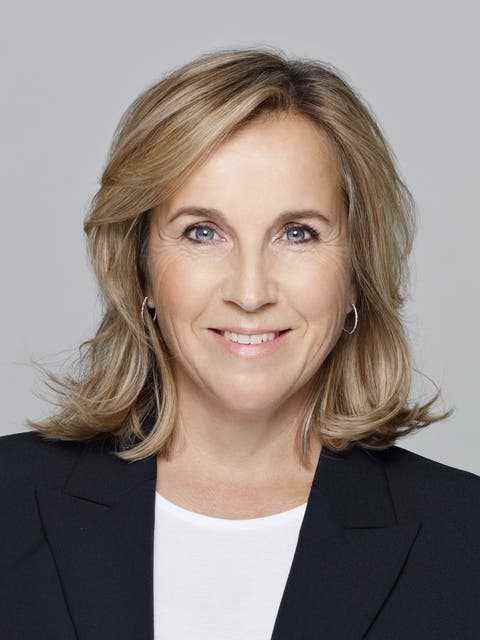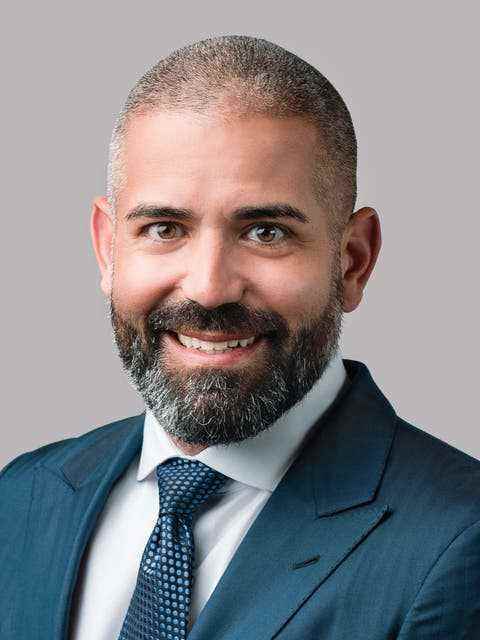Beauty products from South Korea have come into fashion in recent years under the term K-Beauty. German manufacturers such as the family company Babor Beauty are now looking for international success on the G-Beauty wave.
The German family company Babor Beauty employs almost 800 people – three quarters of them in Germany.
Cosmetic products from Germany? Switzerland’s northern neighbor produces many things, whether cars, household appliances or furnishings, and has a reputation for offering high-quality and particularly durable goods. Unlike France, Italy, the USA or, more recently, South Korea, Germany is not known as a leading supplier of high-priced beauty products.
France has a different reputation
Isabel Bonacker, who, together with her cousin Martin Grablowitz, took over the management of the board of directors of the Aachen-based family company Babor Beauty eight years ago, initially had certain doubts herself. “I thought that in the cosmetics industry, primarily suppliers from France should have a good run.”

Isabel Bonacker, Executive Vice President of Babor Beauty.
But the Babor Group, which employs almost 800 people – over 600 of them in Germany – and specializes in creams and other products for skin and face care, is an example of how German beauty products can also sell well internationally. With G-Beauty, a term has been established in recent years that stands for care products made in Germany.
The German cosmetics industry is emulating other up-and-coming nations for the manufacture of beauty products such as South Korea. As an advantage over K-Beauty, Babor manager Tim Waller cites the less time required. While Korean care products have to be applied in up to fifteen steps in daily skin care, G-Beauty is content with three to six steps. “This efficiency is valued, especially in the US.”
Home market still dominates
Waller should know, since he spent six years building up the company’s North American business before being elected to the Executive Committee last February. The sales successes in the USA were an important driver of the growth that Babor and other German cosmetics manufacturers have recorded in recent years. Since 2014, Babor has managed to double its revenue worldwide to 200 million euros.
All manufacturers in Germany together generated sales of 20.7 billion euros with beauty products last year. After all, 7.1 billion of them were accounted for according to the Personal Care and Detergents Industry Association on export.

Tim Waller, Member of the Management Board of Babor Beauty.
Like the entire German cosmetics industry, Babor continues to generate the lion’s share of sales in the home market. Last year, 70 percent came from Central Europe, with Germany making up the lion’s share. According to Waller, the company recently booked at least 10 percent of its sales in North America.
The USA is still the largest sales market for high-priced skin care products, such as those offered by Babor, Swiss manufacturers such as Louis Widmer, Weleda and La Prairie (a subsidiary of the German consumer goods group Beiersdorf). Last year, their share of the global market volume of almost 19 billion euros was 16 percent.
China is catching up
According to market estimates, however, China should almost catch up with the USA within the next five years and then achieve sales of just under 4 billion euros. Overall, the market is expected to expand to EUR 27 billion during this period.
In view of the great importance of the USA and China (the German market was limited to a sales volume of 680 million euros in 2021), it is not surprising that suppliers of high-quality skin care products want to expand primarily in the world’s two largest economies in the near future. Babor has confidently set itself the goal of achieving sales of 500 million euros worldwide within ten years. This implies average growth of 10 percent per year, which means that the company should be making much faster progress than the overall market, as in previous years.
However, the company management has the confidence to do so and points out that Babor has always achieved double-digit growth over the past few years, with the exception of the first year of the pandemic, 2020. As has been the case for a long time, the company, which originally almost exclusively addressed professionals in cosmetic studios as customers, wants to pursue a strategy with several sales channels.
This stipulates that the Babor Group will increasingly sell its products directly to consumers via pharmacies, department stores and online shops. Like many cosmetics manufacturers, the company also operates as a contract manufacturer for retail and hotel chains that offer body care products as their own brands.

Babor’s headquarters are in Aachen.
Bonacker, who represents the third generation of owners of the company founded in the early 1960s, is convinced that internationalization will work. In ten years, the company wants to generate only 35 to 40 instead of 70 percent of its sales in Germany and other Western European countries.
As an important selling point, Babor wants to continue to promote sustainability in the future, with which the suppliers of G-Beauty products are also associated. The company is currently having a new plant built in Eschweiler, twenty kilometers from its headquarters in Aachen, for more than 60 million euros. Thanks to heat pumps and photovoltaic systems, it will do without fossil fuels.
bankruptcy of Revlon
The company faces competition from a number of strong rivals who try to score on price. Large international corporations such as L’Oréal, Beiersdorf or Estée Lauder, whose sales are in the billions and who have been in charge of the cosmetics industry for a long time, have a completely different market power than the German medium-sized company.
The example of the US group Revlon shows how competitive the business with beauty products is filed for bankruptcy. The long-established company was doomed by the sharp rise in raw material prices and the loss of market shares. Unlike Revlon, Babor is not active in the low-price segment. However, the company will have to continue to work with all its might to build up its still limited market position.
